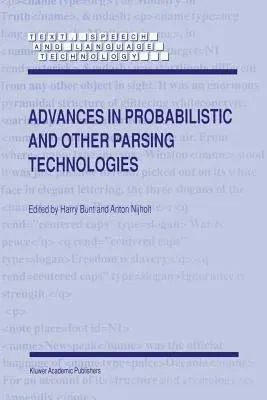Parsing technology is concerned with finding syntactic structure in
language. In parsing we have to deal with incomplete and not necessarily
accurate formal descriptions of natural languages. Robustness and
efficiency are among the main issuesin parsing. Corpora can be used to
obtain frequency information about language use. This allows
probabilistic parsing, an approach that aims at both robustness and
efficiency increase. Approximation techniques, to be applied at the
level of language description, parsing strategy, and syntactic
representation, have the same objective. Approximation at the level of
syntactic representation is also known as underspecification, a
traditional technique to deal with syntactic ambiguity.
In this book new parsing technologies are collected that aim at
attacking the problems of robustness and efficiency by exactly these
techniques: the design of probabilistic grammars and efficient
probabilistic parsing algorithms, approximation techniques applied to
grammars and parsers to increase parsing efficiency, and techniques for
underspecification and the integration of semantic information in the
syntactic analysis to deal with massive ambiguity.
The book gives a state-of-the-art overview of current research and
development in parsing technologies. In its chapters we see how
probabilistic methods have entered the toolbox of computational
linguistics in order to be applied in both parsing theory and parsing
practice. The book is both a unique reference for researchers and an
introduction to the field for interested graduate students.


